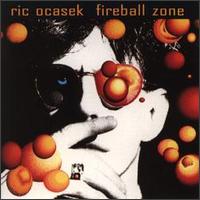
Fireball Zone is the third solo album by the American musician Ric Ocasek, frontman and songwriter of the Cars. The first single from the 1991 release was "Rockaway".
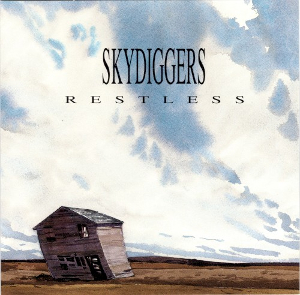
Restless is an album by the Canadian band Skydiggers, released in 1992. It was the band's most commercially successful release, and produced their biggest chart hit, "A Penny More". The band and album were nominated for two Juno Awards.

Sierra Maestra are a Cuban band started in 1976. They sought to revive 1920s classic son, which came from the mountain range on the east of Cuba, after which the band was named.

The New Sound of the Venezuelan Gozadera is an album by the Venezuelan band Los Amigos Invisibles, released in 1998.
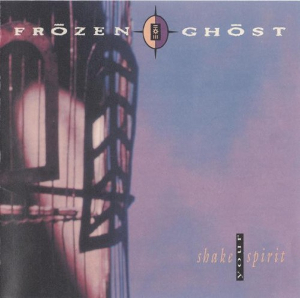
Shake Your Spirit is the third album by the Canadian band Frōzen Ghōst, released in 1992. It was recorded in early 1991. It was the band's final album.
Bernardo da Costa Sassetti Pais was a Portuguese jazz pianist and film composer.

"Clavado en un Bar" is a song by Mexican band Maná from their fifth studio album, Sueños Líquidos (1997). The song was written by the band's lead vocalist Fher Olvera, who handled the production alongside drummer Alex González and Benny Faccone. It was released as the album's lead single on 5 September 1997. A reggae rock "heartbreak" song, the protagonist is depicted as stuck in a bar waiting for his lover to return.
Celeste Mendoza, was a Cuban singer.

Das merkwürdige Verhalten geschlechtsreifer Großstädter zur Paarungszeit is a 1998 German romantic comedy film. It earned the director Marc Rothemund a Bavarian Film Award for "Best Young Director". It was the second highest grossing domestic film in Germany in 1998. The film is a comedy centering on the lives of eight Germans who long for sexual excitement.
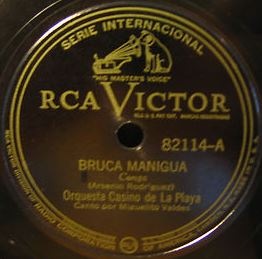
"Bruca maniguá" is an afro-son composed by Arsenio Rodríguez in 1937. It was first recorded by Orquesta Casino de la Playa featuring Miguelito Valdés on vocals in June 1937. Ever since it has become a Cuban son standard, with famous versions by Abelardo Barroso, Sierra Maestra, Buena Vista Social Club and Ibrahim Ferrer. The song, which has been called "a landmark in the development of Cuban popular music" by Ned Sublette, was Arsenio Rodríguez's first hit and an example of his Afro-Cuban style of son within the afrocubanismo movement.

My World is an album by the American musician Ray Charles, released in 1993. Charles incorporated elements of gospel, funk, and New jack swing.
"Anabacoa" is a guaracha composed by Puerto Rican trumpeter Juanchín Ramírez which has become a Latin music standard. Its most famous recording was made in Mexico in 1949 by Beny Moré backed by Pérez Prado and his orchestra. Recorded as a mambo, Moré's recording became a hit throughout Latin America. It was followed by the version made by Arsenio Rodríguez and his conjunto in 1950, which further cemented the piece as a standard of the Cuban music repertoire. Arsenio's rendition, although labeled as a guaracha, was driven by a guaguancó pattern on the tumbadora.

Una Mujer Como Yo is an album by the Cuban musician Albita, released in 1997.

Ya No Hace Falta is an album by the Cuban band Bamboleo. It was released in 1999. The title track was the group's most commercially successful song. The band supported Ya No Hace Falta with a North American tour. The title track appeared in the film Suite Habana.
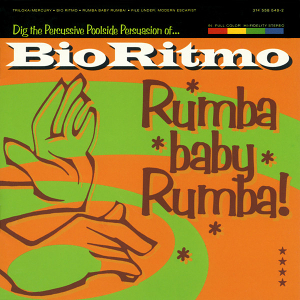
Rumba Baby Rumba! is an album by the American band Bio Ritmo, released in 1998. The band supported the album by touring with Squirrel Nut Zippers.
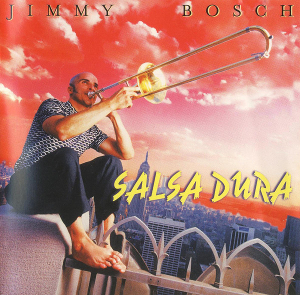
Salsa Dura is an album by the American trombonist Jimmy Bosch, released in 1999. The title translates to "hard salsa", Bosch's descriptor for his music, and the style of salsa that was less popular than the salsa romántica of the 1990s. Bosch also named his band Salsa Dura.
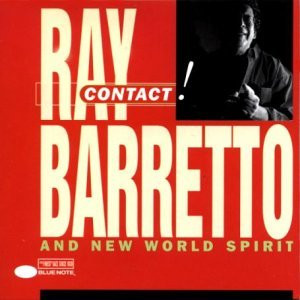
Contact! is an album by the American musician Ray Barretto, released in 1998. He is credited with his band, New World Spirit.

Criolinha is an album by the Cape Verdean musician Fantcha. It was released in the United States in 1998. The album is primarily a collection of coladeira songs, although it includes a few mornas. Fantcha supported the album with a North American tour.
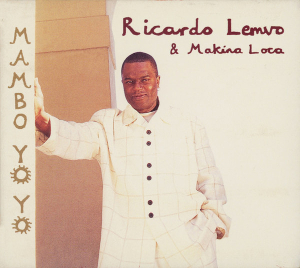
Mambo Yo Yo is an album by the Congolese musician Ricardo Lemvo, released in 1998. He is credited with his band, Makina Loca. Lemvo supported the album with a North American tour that included shows as part of his label's AfroLatino Nights tour.

The Message is an album by the Guinean-born Canadian musician Alpha Yaya Diallo. It was independently released in Canada in 1998, with an international release in 1999. The Message won a Juno Award, in the "Best Global Album" category. Diallo supported the album with a Canadian tour.

















